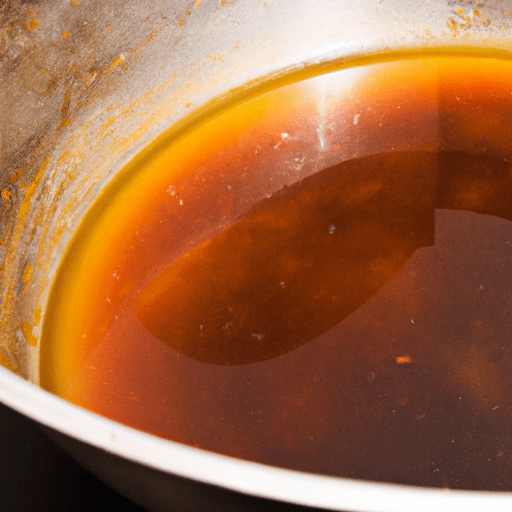Vegetable Stock: A Flavorful Foundation for Every Dish
When it comes to adding depth and complexity to your culinary creations, there’s nothing quite like a good vegetable stock. This unsung hero of the kitchen is a flavorful foundation - a secret ingredient that enhances the taste of countless dishes. In this blog post, we’ll take a deep dive into the world of vegetable stock, exploring its taste, uses in cooking, nutritional value, and uncovering some interesting history and facts along the way.
The Taste of Vegetable Stock
Vegetable stock, also known as vegetable broth, is a savory liquid made by simmering a variety of vegetables, herbs, and sometimes spices. The result is a fragrant and hearty stock with a delicate balance of flavors. While the taste may vary depending on the specific vegetables used, vegetable stock is commonly described as light, subtly sweet, and earthy.
Versatility in the Kitchen
Vegetable stock is incredibly versatile, making it a staple in both vegetarian and non-vegetarian kitchens. It serves as an excellent base for soups, stews, sauces, and risottos, adding depth and complexity to the final dish. This liquid gold can also be used for cooking grains, such as rice and quinoa, infusing them with extra flavor.
Additionally, vegetable stock can be used as a substitute for meat-based stocks and broths, accommodating those with dietary restrictions or preferences. It opens up a world of possibilities for creating delicious vegetarian and vegan dishes that are equally satisfying.
Nutritional Value
Apart from its delectable taste, vegetable stock offers a range of health benefits. While the nutritional value can vary depending on the specific vegetables used, this stock is low in calories and fat. It’s also rich in vitamins, minerals, and antioxidants, making it a nutritious addition to your meals.
The vegetables used in the stock contribute to its nutritional profile. For instance, carrots add a dose of vitamin A and beta-carotene, while celery provides essential vitamins like vitamin K and folate. Onions and garlic, common ingredients in vegetable stock, contain compounds that have been linked to various health benefits, including anti-inflammatory and immune-boosting properties.
A Brief History and Fascinating Facts
The usage of vegetable stock dates back centuries. In traditional Chinese and French cuisine, stock-making has long been a culinary art, forming the foundation of many classic dishes. The practice of using vegetable scraps, peels, and trimmings to create flavorful stock also promotes sustainability and minimizes food waste.
Here are a few interesting facts about vegetable stock:
- Umami Boost: Vegetable stock, with its combination of vegetables and herbs, contributes to the umami flavor profile. Umami, often referred to as the fifth taste, adds depth and savoriness to dishes.
- Clear vs. Opaque: Depending on your cooking method, vegetable stock can be clear or opaque. For a clear stock, simmer the vegetables gently, while a more robust and opaque stock can be achieved by simmering for a longer time or roasting the vegetables beforehand.
- Frozen for Later: Vegetable stock can be made in large batches and frozen in smaller portions. This allows you to have a convenient stash of homemade stock whenever you need it, rather than relying on store-bought alternatives.
Conclusion
Vegetable stock is undoubtedly a game-changer in the culinary world. Its delightful taste, versatility in the kitchen, and nutritional value make it an essential ingredient for both home cooks and professional chefs. Whether you’re aiming to create a comforting soup or add an extra layer of flavor to your favorite dishes, vegetable stock is the secret weapon that will elevate your culinary creations to new heights. So, next time you have a surplus of veggies, don’t discard them - transform them into a batch of rich and flavorful vegetable stock!
Vegetable Stock
Origin: Vegetable stock has been used in cooking for many centuries and can be traced back to ancient civilizations. It is believed to have originated in China and later spread to other parts of Asia and the world.
Common Uses: Vegetable stock is a flavorful liquid made by simmering vegetables, herbs, and spices in water. It is commonly used as a base for soups, stews, sauces, and other dishes, especially vegetarian and vegan recipes. It adds depth of flavor and enhances the taste of these dishes.
Nutritional Benefits: Vegetable stock is low in calories and fat, making it a healthy option for adding flavor to dishes. It is rich in vitamins and minerals, depending on the vegetables used. It is a good source of dietary fiber, which aids in digestion and can contribute to a healthy gut.
Unique Properties: Vegetable stock is unique in that it can be customized to suit individual preferences and dietary restrictions. It can be made with a variety of vegetables, such as carrots, onions, celery, mushrooms, and herbs like bay leaves and thyme. This versatility allows for a wide range of flavors and aromas to be incorporated into the stock.
Historical Significance: Vegetable stock has played a significant role in the development of vegetarian and vegan cuisine. It has provided a flavorful alternative to meat-based stocks, allowing for the creation of vegetable-centric dishes that cater to various dietary preferences and restrictions. Over time, the popularity of vegetable stock has grown, and it has become an essential ingredient in many culinary traditions around the world.
Remember that homemade vegetable stock tends to have a more vibrant flavor and higher nutritional value compared to store-bought options, as it can be made with fresh, quality ingredients.




Use the share button below if you liked it.
It makes me smile, when I see it.